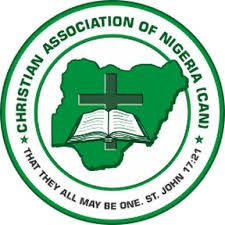
LASG short-term empowerment programme hits 11,251 beneficiaries
By Moses Adeniyi
Number of beneficiaries who have benefitted from the Lagos State Government’s (LASG) Short-Term Skills, Training Acquisition and Empowerment programme has hit no less than 11,251 as at the third quarter (Q3) of 2022, since its inception in 2019 – Nigerian NewsDirect has learnt.
The beneficiaries who obtained the training skills on various vocations, across the available centres, in the five divisions of the State, were empowered with kits for start-up, upon graduation from the free training period.
The programme, which has recorded over 11,251 graduands between 2019 and 2022, extends its reach to women and youths, including faith-based organisation in the five divisions of the State.
In Q3, 2023, 250 beneficiaries are being trained at each of the identified Centres.
The short-term programme being conducted every three months, affords trainees on skills acquisition in Events Decoration, Tie & Dye, Catering and confectioneries, Gele Tying and Make-Up Application, Ankara Craft and Leather Works, Hair Dressing and Wig making, Fabrics Stoning and Embellishments, Throw Pillow making and Interior Decorations, Production of Soap and Pomade and household Products, as well as Tie and Dye Adire making.
At the closing ceremony of a 4-week Short-term Skills Acquisition Training organised by the State Ministry of Women Affairs and Poverty Alleviation (WAPA) for participants in Command Ipaja and its Environments, Agbado-Okeodo, Local Council Development Area, Alimosho Local Government, Lagos, the Commissioner for Women Affairs and Poverty Alleviation (WAPA) said with the dearth of “white-collar” jobs amidst the prevailing economic conditions in the Country, the State Government has recognised the essence of vocational trainings to curb unemployment for economic viability.
“The Lagos State Government has embarked on vocational trainings for women, men and youths as a means to curb unemployment and empower citizens towards self-reliance with bid to achieve a viable economy. One of such socio-economic intervention programmes, is the 4 Weeks Short-term Skills Acquisition programme,” she said.
Applauding the large turn-out of the participants, she said “the programme is a socio-economic intervention which is directed at financial sustainability and progress. There is a dearth of white collar jobs that are seriously going into extinction.”
According to her, it was in realisation of this that “the Lagos State Government established 19 functional Skills Acquisition Centres, with 20 vocations being taught at these Centres that are situated across the State.”
She mentioned that an additional centre yet-to-be Commissioned Centres at Agidingbi Road, Ikeja and one more Centre at Ibeshe, would take course soon, “hence, creating an avenue of self – sustainability for the Lagos citizenry.”
According to her, Communities which have been reached in the 4-week trainings include: Agege, Orile-Agege, Iba, Oto-Awori, Mushin, Odi-Olowo, Iru, Ajido – Badagry, Ibeju – Lekki, Ikosi – Ejiirin, Epe, Ebute -Metta, Ikeja, Irewe in Ojo Local Government ,as well as Topo – Badagry, settlements of the State.
“This also includes trainings and empowerment for Islamic and Christian based faith groups, Wives of Military officers, Wives of Civil Servants official, (COWLSO), People Living With Disabilities, Retiring Public Servants, People Living With Human Immunodeficiency Virus, People Living With Sickle Cell Anemia, SUBEB Parents-of-out-School Students, NASFAT, as well as Internally Displaced People,” she added.
The Commissioner who was represented by the Deputy Director, Women Affairs, WAPA, Mrs. Bode Onidoyin, said the empowerment was strategic to socio-economic development as a strategy to tackle poverty.
According to her, the State Government having recognised the prevailing economic circumstances, has acknowledged the significance of women empowerment.
“The present Administration under the able leadership of Mr. Babajide Olusola Sanwo-Olu has taken women empowerment as one of its focal policies, in order to mitigate the effects of poverty prevalence amongst women,” Dada said.
According to her, the objective to empower women was “for upliftment of their status from state of dependency to resourcefulness in providing the needs of their respective families.”
Dada said the State has zero tolerance for idleness and mediocrity, but “encourages productivity, and the ideals of financial sustainability, with a focus on self dependence.”
She called, particularly, on “unemployed persons, the under-employed and those who are still patiently waiting for white collar jobs, to utilise these opportunities by learning at least a vocation to become self-dependent,” saying “Lagos State Government has zero tolerance to idleness in any form.”
She said testimonies of beneficiaries who are thriving in their vocations approve the significance and value of the programme.
“I will like to inform this gathering, that following the success stories of these trainings, several letters of recommendations have been flowing in, one of such letters is appreciation Letter from the Management of Lekki Worldwide Investment Limited, stating that amongst the recently concluded Short -Term Skills Acquisition and Empowerment programme, six of such beneficiaries are doing very well in their craftsmanship with the aid of the free work tools by MWAPA,” she said.
In his remark, representative of all the CDAs around Ajosepo environment, Pastor M.O. Ogunleye, said the effort was a reflection of good leadership, appreciating the Governor and the Commissioner for the empowerment.
He said the measure was a rare opportunity and dividend of democracy, requesting that “they expect more,” to lift youths, women and the vulnerable from lack to self sufficiency.
He charged the beneficiaries “not to bury the talent as the biblical illustration of the man who buried his talent.”
“Go and utilise it, this is a rare opportunity,” he said.
A beneficiary, Odunayo Celestina, said it was a wonderful empowerment which would remain with the participants, as it would serve as new way for many graduates who have not been able to get white collar jobs to get on with vocations to utilise their potentials.



